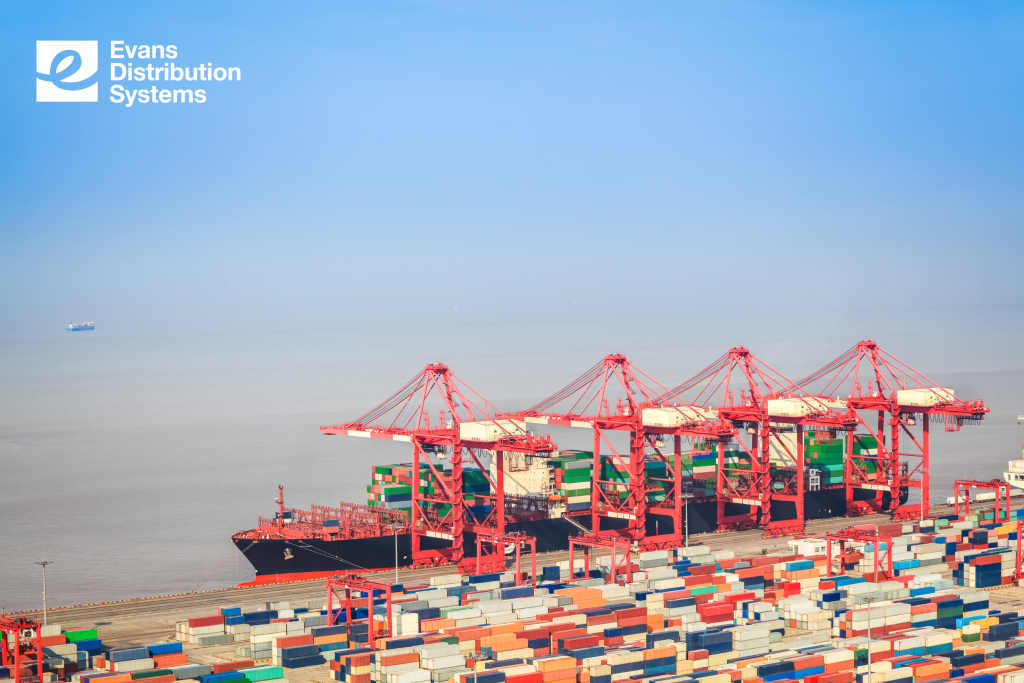
Evans Distribution Systems has been granted Foreign Trade Zone (FTZ) status in General Purpose Zone No. 70, representing the Greater Detroit Foreign Trade Zone (GDFTZ), since 1987. Today, we operate more than 1 million square feet of FTZ space and continue to expand our footprint to include all eight warehouse facilities.
FTZs are special economic zones in the US where imported goods can be stored, distributed, processed, and used without being subject to duties and excise taxes until the goods are transferred into commerce.
Over the years, customers have used our FTZ for a variety of reasons. Here are a few cases for how FTZs can be used and why many times, they are good for business.
Business Case #1: Manipulation of Multiple Components into One
Most goods are subject to duties or tariffs. Every good is given a classification that determines the custom fees required by the U.S. government. However, goods in the FTZ are allowed to be manipulated, including assembling, testing, re-work, cleaning, re-labeling, re-packing, and co-packing with other foreign or domestic products. A beverage customer that was sourcing components from different countries to be co-packed into special holiday themed giftbox, was pleased to hear that rather than paying duties on multiple items as they came to the U.S., they could pay duties on the giftbox, as one single good, thereby greatly reducing duty fees.
Business Case #2: Rerouting Containers to Avoid New Elevated Duties
Duties and tariffs can change at any moment. Governments often use tariffs to protect industries from foreign competition and market manipulation. These practices can produce unforeseen fees that greatly affect businesses that rely heavily on imports. When this happened to a tire manufacturer, Evans was able to quickly track and reroute containers that were on the water to its FTZ in a short window of time before the government’s new duty structure was recognized by the ports. Evans was able to provide drayage drivers, warehouse associates, and dispatch teams quickly to handle the more than 100 containers in this limited time, all while maintaining proper documentation of FTZ status.
Business Case #3: Destroy Damaged Goods Before They Are Declared
One automotive supplier received notice that several containers were damaged along with the goods inside them. They had to act fast to get the goods into an FTZ to sort through the containers and eliminate the damaged goods without having to pay customs fees on them. Evans was able to sort through the containers with quality checks and separate the damaged goods from the undamaged goods. From there, they eliminated the waste and repacked, palletized, and re-labeled the goods to deliver to the auto plants.
Business Case #4: Holding Out for a Favorable Tariff
Several customers have entered FTZs with a goal of keeping products there until a more favorable tariff comes along. The U.S. government does not place time limits to how long goods can stay in the zone. Under the right circumstances, some goods stay in the zone to wait for a leadership change or some other event in hopes the tariffs will be reduced.
Business Case #5: Use FTZs to Manage Cash Flow
Some customers have millions of dollars of inventory coming from overseas and use the FTZ as a tool to manage their cash flow. One automotive supplier of Chinese cylinders deferred duties to free up cash to avoid a huge one payment, paying only on a periodic release of the goods over an extended period. This is highly beneficial for automotive suppliers who depend heavily on automotive production schedules which can be volatile.
There are several reasons why FTZs are for businesses. With a new president that is highly motivated by tariff manipulation, FTZs will become very important to businesses over the next four years.
Is FTZ right for you? Our experts are standing by to discuss our FTZ space and determine if this is the right option for you. Request a quote today!
